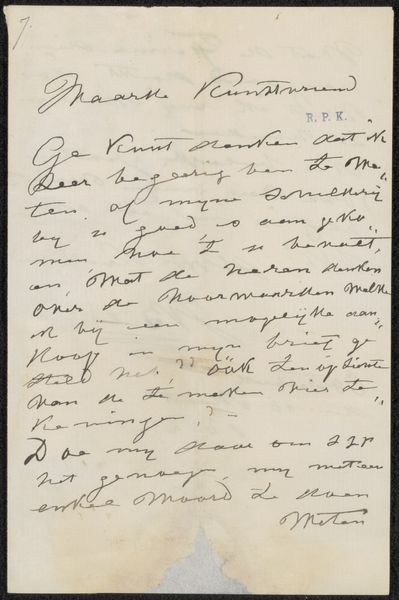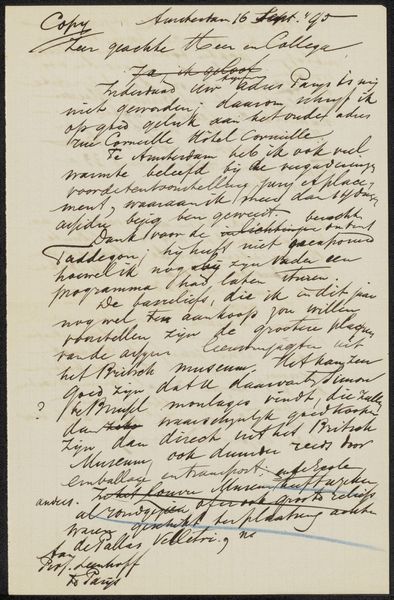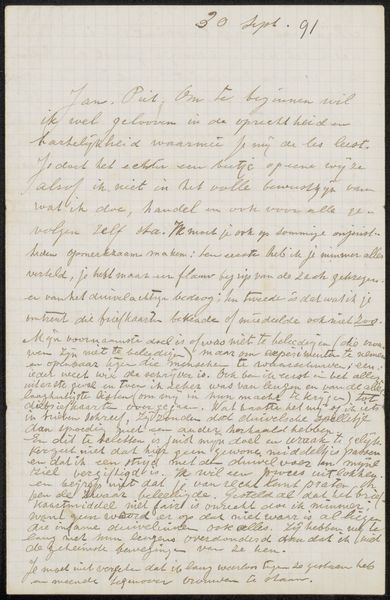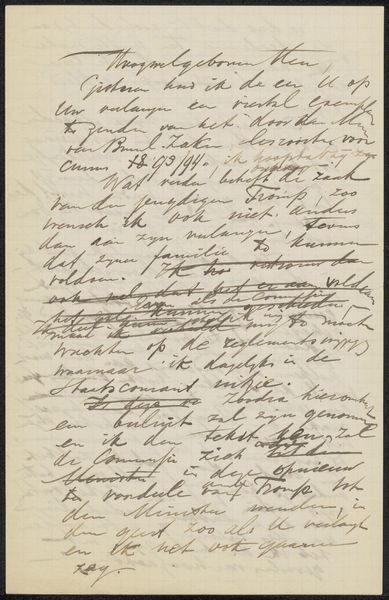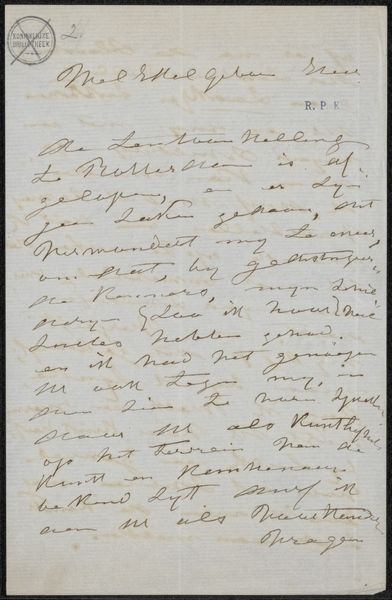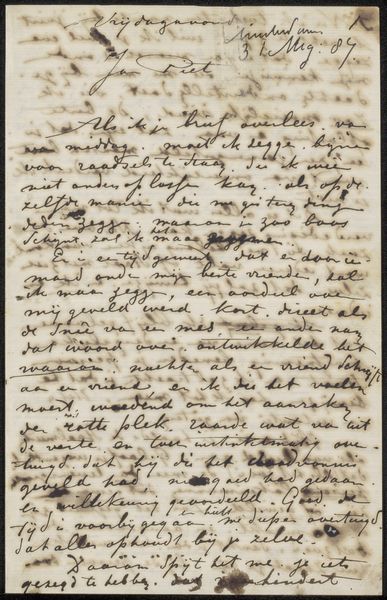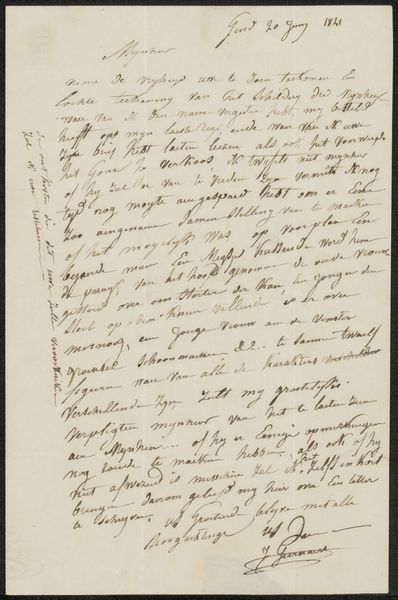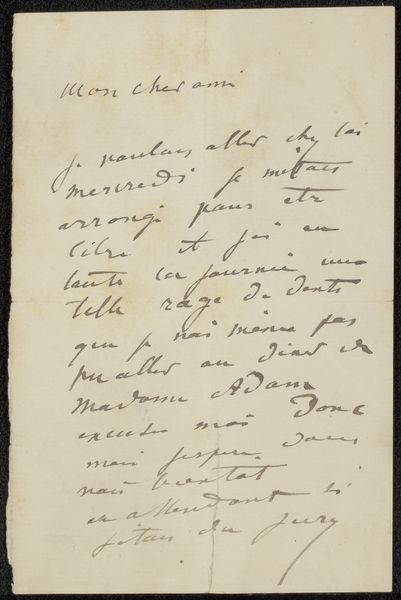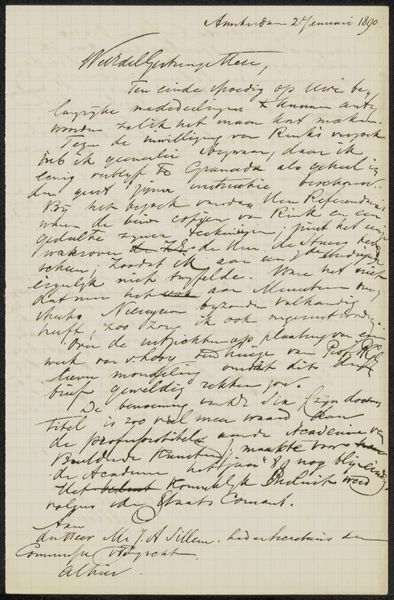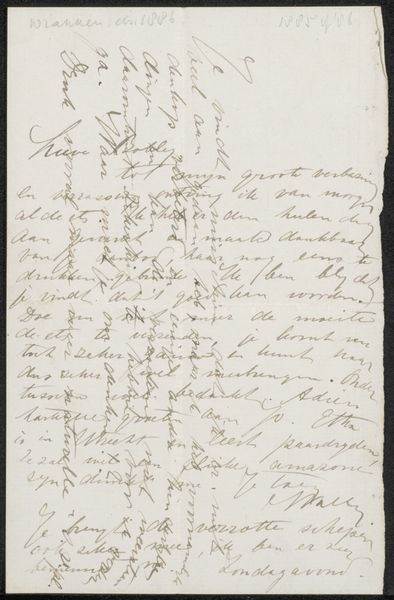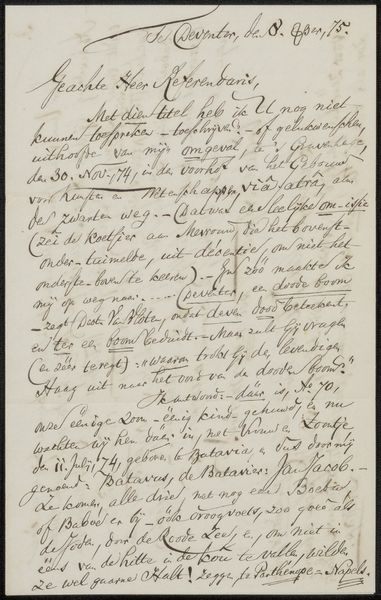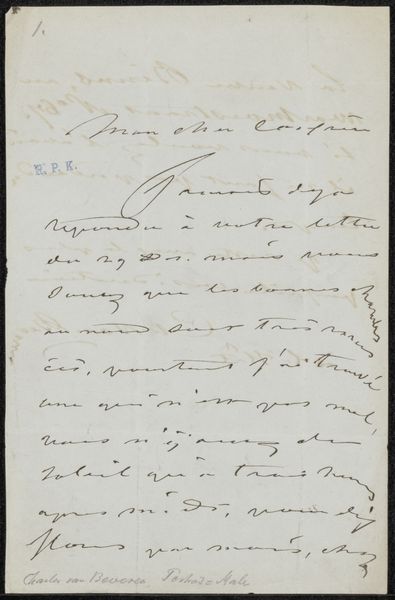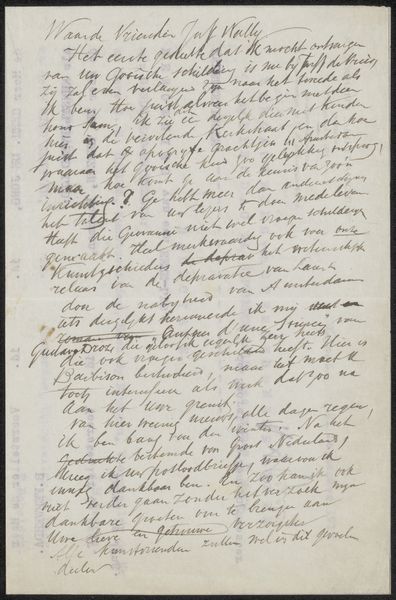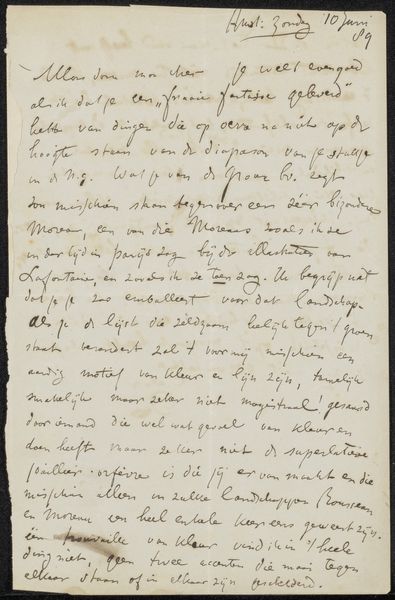
drawing, paper, ink, pen
#
drawing
#
dutch-golden-age
#
pen sketch
#
paper
#
ink
#
linocut print
#
sketch
#
pen-ink sketch
#
pen work
#
sketchbook drawing
#
pen
#
calligraphy
Copyright: Rijks Museum: Open Domain
Editor: Here we have Adriaan Pit's "Brief aan Philip Zilcken," possibly from 1887. It’s an ink drawing on paper. It reminds me of old letters discovered in a dusty attic. What stands out to you when you see this work? Curator: I see a powerful example of how personal correspondence can become a historical artifact, revealing insights into the social and intellectual networks of its time. This letter, beyond its immediate personal context, reflects broader themes of communication and connection during a period of significant social change. How might we consider this letter within the framework of social history, thinking about literacy, class, and access to communication? Editor: That's interesting! I was focused on it as a visual object. I hadn’t considered the class aspect so directly. Curator: Well, let's also look closer at the act of writing itself during the late 19th century. Penmanship was both a practical skill and a form of social capital. How does the very style of handwriting communicate elements of identity, education, and social positioning in a way that is either enabled or restricted along cultural norms? Editor: It definitely has a unique aesthetic. So, you're saying that even the style of handwriting could be seen as a reflection of someone’s identity? Curator: Exactly. It underscores how deeply embedded art practices are within societal structures. How the personal touches the political and vice versa. What do you make of that interplay? Editor: I think it is about considering art and the way we communicate as being influenced by so many social factors. It has definitely provided another perspective of seeing art. Curator: Indeed, it is a window into the past, reminding us of the importance of understanding art as a cultural mirror.
Comments
No comments
Be the first to comment and join the conversation on the ultimate creative platform.
